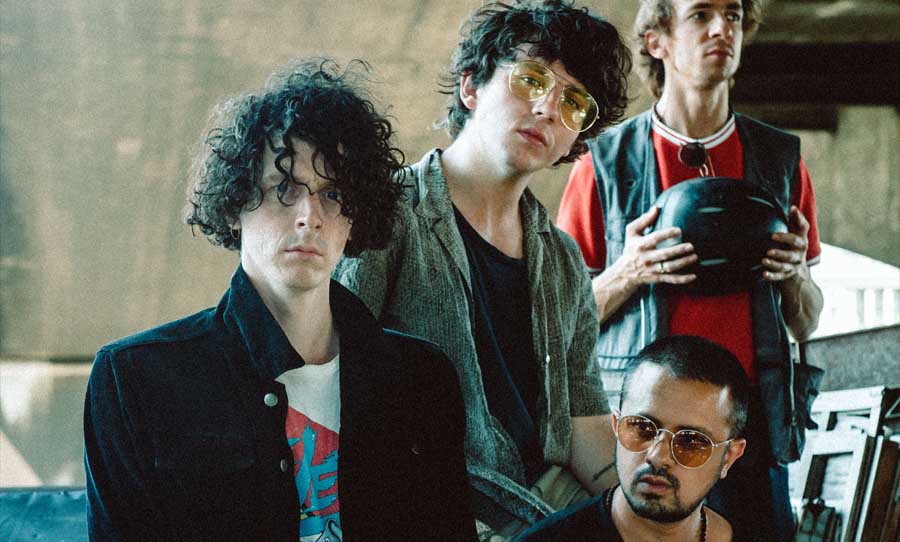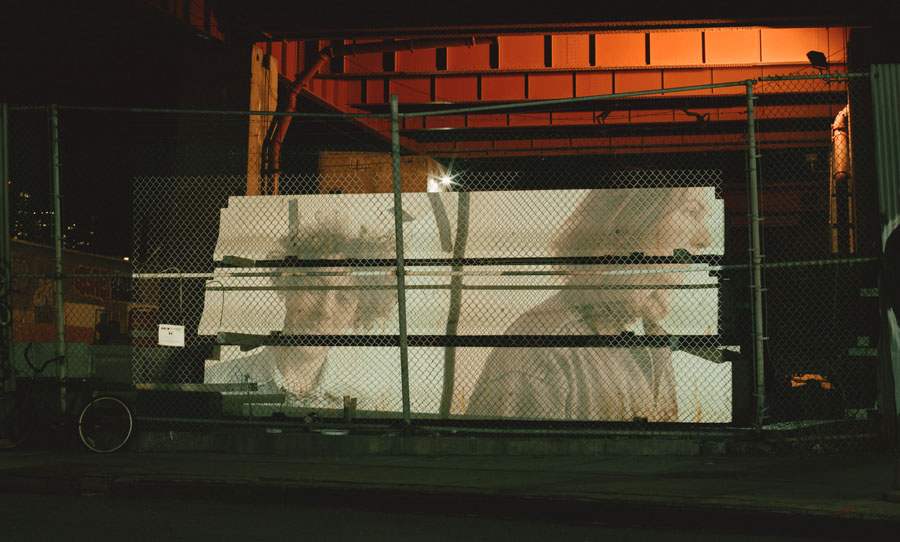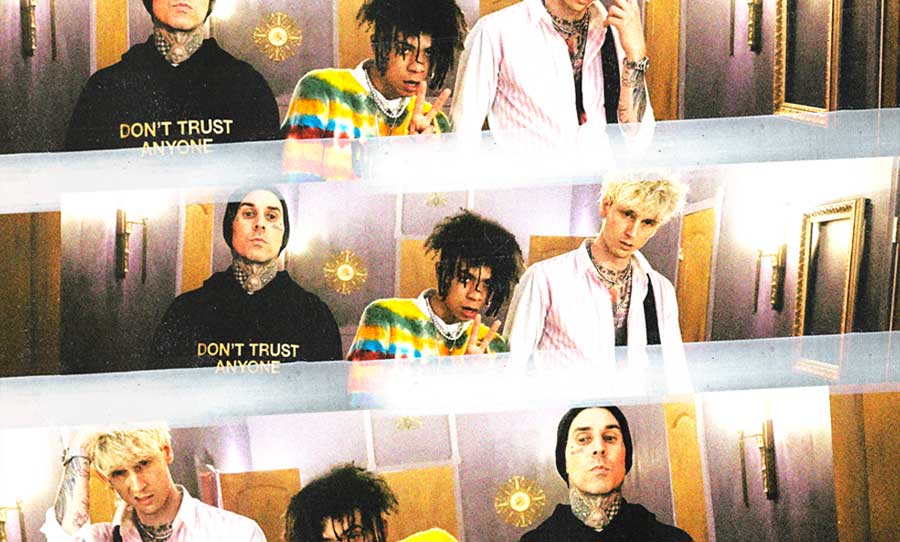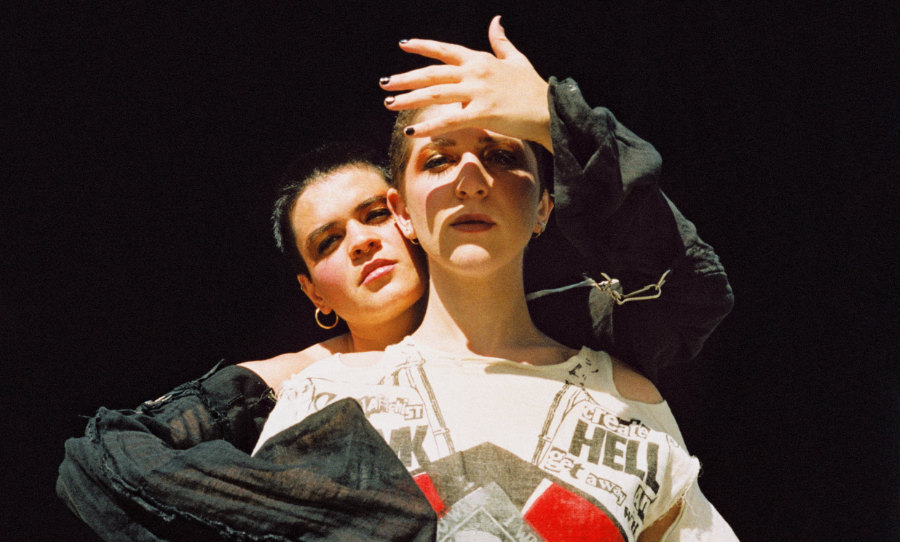Blaine Harrison stands front and centre of Mystery Jets, a band that rode the mid-naughties UK indie explosion and haven’t backed down since. Though it’s their latest record, A Billion Heartbeats, that he believes to be the most timely of their entire output.
After delaying the album while Harrison undertook emergency surgery, Mystery Jets have found themselves with an album release date set right in the middle of a global pandemic. But as it turns out, that only made the record’s themes more pertinent.

We speak to Mystery Jets frontman Blaine Harrison about A Billion Heartbeats, an uplifting set of protest ballads the world direly needs to hear.
HAPPY: You’ve said A Billion Heartbeats is your “state of a generation” record, and with the release date change you’ve accidentally written it for a once-in-a-generation event. How has the current situation changed the way you look at the record?
BLAINE: Obviously I think the COVID-19 pandemic… it was so unprecedented. Looking positively, I think it has actually derailed a lot of the systems that led us to where we’ve been heading for the last year. You know globalisation, global warming, consumerism… I think in a sense a lot of the themes that we try to explore in the record are very related to the systems that have actually crashed down as the world has ground to a halt.
HAPPY: For sure.
BLAINE: The record really was inspired by a year of protests which I attended in Trafalgar Square. During that time I was living in a building literally opposite Trafalgar Square as a public guardian, my job was to kind of act like a human guard dog. But when I was there I had a rare insight, I suppose, into the culture of protest in London. At that time it was post-referendum, 2017-2018, there were Brexit-related marches once or twice a month, there was the International Women’s Day march which was in part in response to Trump getting into office, and there was Trump’s visit to the UK which had a protest. Then there was the refugee crisis… it was quite a crazy time to be in the eye of the storm. I’m still only down the road actually, I can still join protests as they come past, but I think that as a songwriter you’re ultimately writing about the world around you. That environment and that chaos became my world, a little bit.
HAPPY: There’s this thread I’m sick of hearing that there isn’t any protest music anymore, that it died somewhere in the ‘80s or ‘90s. Which of course, isn’t true. Do you consider the album to be a protest album?
BLAINE: I think so. My relationship with protest goes back to when I was younger, when I was an art student I went on the anti Iraq War protest, which was about 2004 I think. At the time it was the largest democratic gathering in the country, it was close to a million people, and I really felt that at the time, that experience was so formative and it shaped my belief in what it means to come together and fight on a united front against a common cause. But I think after that march there was a feeling in this country that protest doesn’t work, because we still went there and we still took part in that war and we weren’t given an explanation for it. I think a lot of people in this country felt seriously un-listened to, and I felt well, if that can come together and it still can’t stop our country building weapons and selling them, bombing, destroying tens of thousands of people at a time, then maybe protest doesn’t hold its power.
Then I think when I was living off Trafalgar Square, it reawakened that spirit in me. I suppose it’s an optimistic spirit, because to take to the streets in those numbers you have to believe in something. We’re told that ultimately you can’t shape legislation, you can’t change reform or whatever’s going on behind closed doors, but I think you can, because these people work for us and in our systems it’s important to hold them to account. So I feel very strongly that protest is a very powerful form of expressing our free speech. And as a songwriter, ultimately what shapes my songs is having an attachment to empathy, and when you go to a protest it’s so powerful to feel what other people are going through and to experience their anger at what they believe to be unjust. It’s really important to be writing about that, things that are going on in society at a wider level – you’ve got to look outside the grounds of your own experience and a protest is such a powerful way to do it.
HAPPY: You pushed the physical release of your album back for health and safety reasons, which I find interesting because there are some people I know personally who are displaying a small degree of guilt in hammering their releases right now. Was that a hard decision to make?
BLAINE: Well, the slight issue that we had is that we had to delay the record once already.
HAPPY: Of course.
BLAINE: We had to push it back about five months, six months, and that was due to my surgery. It felt like people had been so supportive of us moving it once already that we didn’t want to take the piss, I suppose. We just wanted to get the record out there. It’s definitely going to be a difficult release because on a really practical level we’ve had to pull all our advertising on the London Underground, billboards and all that stuff. But who cares? You know, there’s so much going on in the world right now that those things feel quite trivial. It isn’t – because of charts and that – a good time to be releasing a record, but it is a good time to be putting new music out into the world because people really need it right now, more than ever. Music, I think it can heal and I think it can help the world heal, I think it has the power to comfort and to help us during difficult times. That goes back to a song on the record called Hospital Radio which I wrote about spending lots of time in hospital prior to the record, but I think music is still the most powerful medicine that we’ve discovered. In a way, there’s never been a better time.
HAPPY: I’m going to ask about Hospital Radio in a moment, but on what you just said – it’s been really interesting to see people being both quite afraid of releasing music right now in terms of that practical, marketing side of music, but then there’s people doing the exact opposite. It’s delineated the people who are much more results-driven with those who are much more message-focused like yourself.
BLAINE: I see. I think the messages are so clear right now. Like, what’s actually important? In a world stripped of the consumer, capitalism, all these systems that we’ve created in terms of our careers, organisations that we work for, or these wider goals that we have in our lives – these perceptions of ourselves and our lives and the world around us – all of those systems. It’s actually given us a moment to think about what’s important to us. I think what’s important is contact – I think we need each other, I’ve had more Google Hangouts, Facetime, and Zoom chats than I would have had conversations in my ordinary life at this time – we need human contact. We need food! There’s a reminder of bare essentials, just look at the hysteria of people buying things. What’s really important is people, and food, and having a way of creating your own escape in your mind and I think music can really help with that, just being able to travel to a happier place in your mind.
HAPPY: 100 percent. On Hospital Radio, I understand you visited a lot of these stations. What were the people like who run these? Are they people who already work in hospitals, or is it a foot in the door for people with ambitions in radio?
BLAINE: So as you said, when we released that song we did a tour of hospital radio stations and I’ve got to say, it was the most inspiring, enjoyable promotional tour we’ve ever done. It was just so encouraging going into these environments – in a hospital music feels so important and hospital radio is this thing which has somehow managed to escape budget cuts and austerity and government measures. They’re still there, I think there’s still 190 hospital radio stations. They’re often tucked away in the bowels, in a little room there’s just someone making up shows, making up quizzes, broadcasting it out to the hospital… there’s something that feels so archaic about it. It’s very important, it’s an institution that’s also representative of the NHS as a whole. When you go and play on these stations they’re just run by volunteers, to answer your question they’re not nurses and doctors and things like that, they’re people who have a passion for music and actually in the UK, quite a few of our well known DJs started out in hospital radio.
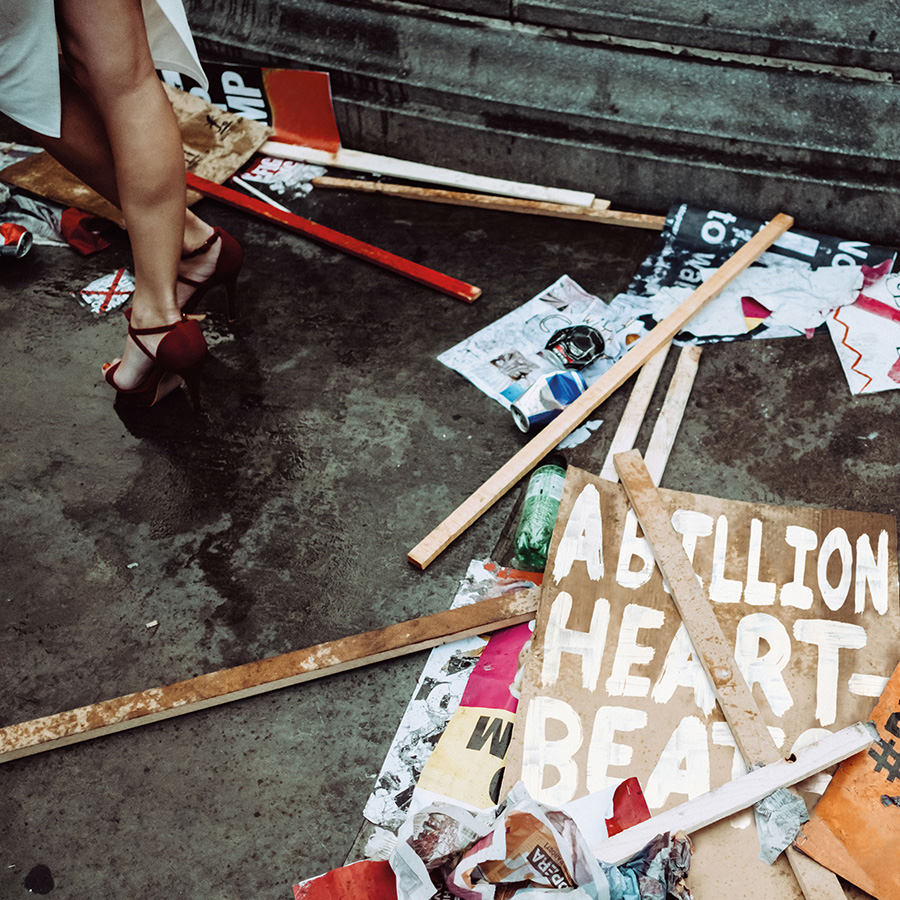
HAPPY: That’s very interesting, nothing really like that exists over here. We have community radio of course but hospital radio… there’s just an extra element of care and charity put into it. It’s an amazing thing to learn about, I’d never heard of it until I heard your song.
BLAINE: It is quite powerful. I think what’s always struck me when I’ve listened to it is that you never know who’s listening to that show that really, really needs it.
HAPPY: Of course.
BLAINE: I don’t know if you have this in Australia but we have the shipping call cast in the UK, it’s played out at several points in the night and it’s essentially for industrial freighters and ships that are out in the ocean, a broadcast of all their coordinates and weather and updates. Hospital radio is a little like that, it’s like a lifeline in the dark, it always puts me in a really grateful mindspace when I listen to it because it feels like a hospital is such a, you know, such a difficult environment to be in. Especially if you’re visiting somebody else or you’re having complex operations – as I often have because of my disability, I’ve kind of grown up in hospitals – you have this sense listening to the shows that someone out there really needs it.
A Billion Heartbeats is out now via Caroline Australia.
